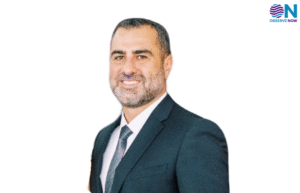Automation has taken the world by storm. It is creating new prospects for innovation not just in entrepreneurship but in the case of mundane employability opportunities as well. According to a McKinsey report, around 15 per cent of the global workforce, or about 400 million workers, could be displaced by automation in the period 2016–2030.
With all the technology intervention happening, it becomes mandatory to upskill and reskill in every field. The state of Maharashtra is actively taking steps to enhance skill development within the state. Recently, TeamLease EdTech, the Department of Higher &Technical Education (DHTE)-Government of Maharashtra, and the National Skill Development Corporation (NSDC) are collaborating to improve the employability of the youth in Maharashtra. The alliance aims to harness the potential of work-linked learning programs across universities in Maharashtra, directly contributing to the state’s target of achieving a $1 trillion economy in the next five years until 2028.
To explore the recent developments in the skill and employability department of Maharashtra and understand the broader spectrum of the skill ecosystem in India Shivani Babbar, OberveNow Media interacted with Nidhi Choudhari, IAS, Commissioner, Department of Skill Development, Employment, Innovation, and Entrepreneurship, Government of Maharashtra in an exclusive interview.
As the Commissioner of Skill Development, what are your key priorities for enhancing the skill landscape in Maharashtra?
For several years, the department has focused extensively on providing employable skills to the youth of Maharashtra. My focus will be largely on providing globally employable skills so that our youth can apply for jobs in any country in the world and become internationally employable. For this, our focus is to promote the Swami Vivekanand Maharashtra International Skill Centres across the six revenue divisions of the State of Maharashtra. One such center has been commenced in ITI, Vidyavihar and the remaining five are in the process of being set up.
Secondly, my priority would be to impart state-of-the-art vocational education in it is of Maharashtra. With the help of World Bank funding under the DAKSH project, my emphasis will be on the upgradation of ITIs into micro incubation centres for entrepreneurship and vocational employment.
Thirdly, revamping short-term skilling courses by encouraging only contemporary employable gender-neutral skills. For example, a lot of short-term courses are focused on tailoring, bakery, beauty parlors, etc for women whereas women’s participation in courses focused on robotics, drones, IoT, and animation is meager.
Fourthly, the job fairs as are organized by the Employment officials need business process reengineering. I would try to get an in-depth understanding of the job fairs and revamp it to make them more effective in terms of employment generation. As of today, these events are creating more awareness about the available jobs in the market, but not resulting in real meaningful employment.
Last but not least, my priority will be to get the new Startup Policy of the State to get approved and executed on the ground to encourage start-up culture and strengthen the eco-system.
Could you share some successful initiatives or programs you’ve implemented to promote skill development within the state?
After I joined the Department as Commissioner, Skill Development; we successfully implemented four Mega Job Fairs in Thane, Baramati, Latur, and Ahmednagar. Likewise, the Student Innovation Challenge has been successfully implemented in which we rewarded the Students with innovative ideas with a cash prize of Rs.1 lac and are also extending pre-incubation support. Additionally, we have started Acharya Chanakya Mahavidyalaya Kaushalya Vikas Kendras in 128 colleges and are aiming to expand it to over 1000 colleges in Maharashtra. Successful execution of MOU with BVG for setting up Sant Gadge Baba Swacch Skill Academy in ITI Kopri and MOU with MSSU and NSDC International for setting up Swami Vivekanand International Skill Academy in ITI Vidyavihar will pave the way for niche institutions in the skilling eco-system. We have also got World Bank negotiations for the DAKSH project which would bring in the upgradation of skilling infrastructure in the state.
What challenges do you perceive in bridging the gap between industry demands and the skills possessed by the workforce in Maharashtra?
There are multiple departments and agencies providing skill training which can be converged better with the schemes of the Skill Development Department. Avoiding duplicity and having a uniform strong skilling Commissionerate can bring in much-needed impetus. As of now, short-term skilling is with MSSDS, long-term vocational training is with DVET, start-up activity is with MSINS, and employment is with Commissioner Employment. As separate entities, they are weak agencies but if put together they can deliver better public service. There obviously is a need to re-engineer the employment exchange structure and make it more digitally integrated with vacancies available in the industry. We are working on integrating all the skill data on one portal and then, the gaps in job market demand and supply may be better addressed.
Can you highlight any technological innovations or advancements that have been integrated into skill development initiatives under your leadership?
Yes. We are proposing a Skill Data Centre under the World Bank-funded DAKSH project. This will act as a one-stop window for all skilling-related data and will surely act as a catalyst in the employment sector too. We are upgrading our portal Mahaswayam and proposing to get an integrated portal on the lines of NSDC for all skilling activities. We are also working on a decentralized fund release for skill training programmes at the level of Assistant Commissioner, Skill Development to enhance efficiency and ensure the timely release of training-related payments. For DVET procurements, green channel partnerships through MOUs with the best industries are in the pipeline to eradicate delays and ensure quality in ITI labs.
In what ways do you collaborate with educational institutions and industries to design skill development programs that are aligned with market needs?
There is no denying that there exists a gap between educational academic learning and skilling requirements. In fact, this was the reason why we planned to set up vocational skilling centers in the Colleges in pursuance of the achievement of the vision of the New Education Policy. As I mentioned earlier, there is a thought about establishing ITI labs as centers of excellence with the support of industries of excellence. We are deliberating upon giving green channel status to certain industries which can help us in setting state of art labs in contemporary skills/trades like robotics, drone, animation, AR/VR, IoT, 5G, M2M learning, Smart Building solutions, Solar Energy etc.
How do you envision the future of skill development in Maharashtra, particularly in light of emerging technologies and evolving job markets?
We are aware of the emerging technologies and evolving job markets; and are working on setting up ITI labs on these skills besides also incorporating these courses on priority in the College level Skilling Centres. It is interesting to note that in Maharashtra, the Commissioner of Employment is also the de-facto CEO of the Maharashtra State Skill Development Society (MSSDS) and CEO of the Maharashtra State Innovation Council (MSINS) besides being the Head of Department for the Directorate of Vocational Education and Training (DVET). In addition, Commissioner Employment is a member of the Governing Body of Maharashtra State Skill University (MSSU) and Maharashtra State Board for Vocational Education and Training (MSBVET). This ensures a lot of coordinated efforts in the skilling sector and I am positive that Maharashtra will not only pave the path of comprehensive skill development in the state but with its skilled manpower be encouraged to join the international job market under the aegis of Maharashtra International our latest initiative, the future of Maharashtra’s skilled workforce is very bright.
























